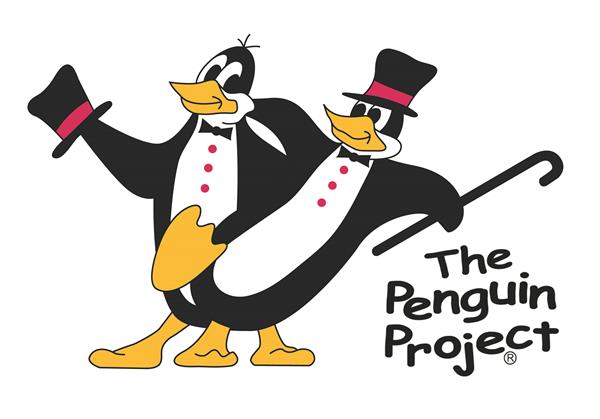- Corsicana ISD
- History of the Penguin Project

-
The Story of the Penguin Project
The Penguin Project was conceived by Dr. Andrew Morgan, Professor Emeritus of Clinical Pediatrics at the University of Illinois College of Medicine at Peoria. He has been the primary medical specialist for children with special needs in Central Illinois for over 30 years and has also been an active participant in live theatre since he was in high school. Through his professional contact with his patients and their families, he recognized that children with special needs and their families are often isolated, and have limited opportunities to participate in community activities, especially when programs need to make accommodations for special challenges. He also realized that participation in the performing arts has specific therapeutic value by enhancing socialization, communication skills, and self-esteem. So, in 2004, he decided to combine his two passions and The Penguin Project was born.
Since then, The Penguin Project has produced one musical theatre production each year at Eastlight Theatre in East Peoria, IL. The program has grown substantially since its inception to include over 80 children in the program each year and an average of 1,000 people in the audience each night. The program has truly been a life-changing experience for all those it touches and has demonstrated that the challenges of a special need should not handicap the ability of anyone to succeed.
It was the parents in the program who recognized the significant impact The Penguin Project had on their lives and encouraged Dr. Andy to share his concept with others. In 2007, the Penguin Project Foundation was established as a 501c3 with the primary purpose of creating a Replication (new Penguin Projects are referred to as Chapters) process using the Peoria Penguin Project as a model to bring the program to other communities. There are currently multiple Chapter sites around the country, with new ones being added every year. Each program has duplicated the programmatic, emotional, and financial success of the original.What is the Penguin Project?
Once a year, a magical and touching celebration of the human spirit unfolds at numerous theaters across the country. A group of children in a program called The Penguin Project take to the stage to perform a modified version of a well-known Broadway musical. These productions are unique, however, because all the roles are filled by young artists with developmental disabilities including Down syndrome, cerebral palsy, autism, intellectual disabilities, learning disabilities visual impairment, hearing impairment, and other neurological disorders. They are joined on stage by a dedicated group of “peer mentors” – children the same age without disabilities who have volunteered to work side-by-side with them through 4 months of rehearsals and through the final performance. By providing access to community theater, The Penguin Project demonstrates that the special challenges of a disability should not handicap a child’s ability to participate in life’s experiences.
Established in 2004, The Penguin Project has evolved into a National program, with Chapter sites throughout the United States. The program provides a supportive environment for children with disabilities to explore their creative talents. It has also demonstrated that participation in the performing arts has therapeutic value by enhancing social interaction, communication skills, self-confidence, and self-esteem. The impact of the program has reached beyond the stage to create a social network for children who previously had very few friends and limited social opportunities.
How the Penguin Project Changes Lives
The Penguin Project not only impacts our audiences while at the theater, it changes lives. Here are some of the facts collected from participants of previous shows:
- 96% of surveyed artists and mentors reported feeling more proud of themselves since being a part of the Penguin Project.
- 86% of artists reported improvement in doing things on their own since being a part of the Penguin Project
- 80% of mentors reported feeling “a lot better” about others being different from themselves since participating in this program.
- Over 70% of artists reported finding it easier to be friends with kids without disabilities since being a part of the Penguin Project.
- All participating artists reported improvement in singing, dancing, music, and acting.
- Over 70% of mentors reported finding it easier to stand up for themselves since being a part of the Penguin Project.
- 100% of participating parents reported they experienced growth in connections with other families with kids with disabilities, as well as new friendships.
- 95% of parents reported growth in their knowledge of services and support for individuals with disabilities.
- 80% of parents reported growth in their children in feeling a sense of belonging.
- 67% reported their children are now more comfortable speaking in front of a group.
- All participating parents of mentors reported their children are more accepting of differences in others since being a part of the Penguin Project.

